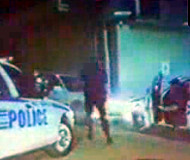3/5/2014
US Supreme Court Considers Limits Of Deadly Force In Police ChasesUS Supreme Court considers case of whether cops can gun down a motorist over a pursuit about a broken headlight.

Justices of the US Supreme Court on Tuesday began deliberating whether it is acceptable for police to kill a driver and a passenger after a high-speed pursuit that started from a minor infraction. Attorneys made their case in oral arguments outlining the legal implications of the July 18, 2004, shooting that left Donald Rickard and Kelly Allen dead.
Rickard had been driving his white Honda Accord with Allen in the passenger seat when West Memphis, Arkansas Police Officer Joseph Forthman noticed one of the Honda's headlights was out. He initiated a traffic stop. Officer Forthman asked a series of questions before insisting that Rickard step out of the car. Rickard drove away, kicking off a five-minute pursuit that made its way to Interstate 40 and onto side streets in Tennessee.
Officer Forthman stated that Rickard attempted to ram his squad car, creating a felony. Instead of terminating the pursuit, one of the squad cars rammed Rickard's Honda and sent it spinning into a parking lot. The squad cars then surrounded the Honda, leaving no way to escape other than backing up, which it did. The officers opened fire, sending 15 rounds into the vehicle at point-blank range. Both occupants were killed.
A trial judge and the Sixth Circuit US Court of Appeals both found the officers were not entitled to immunity for their actions because of the excessive force used. Now, a decade later, the officers are asking the high court to reject the lawsuit filed by the families of Rickard and Allen. Michael Mosley, the lawyer for the officers, insisted Rickard presented a clear safety threat. Chief Justice John Roberts asked him to contrast that with an example of a pursuit where force would clearly not be justified.
"I suspect that somebody fleeing at the speed limit, not endangering other drivers," Mosley said. "I hate to use television as an example, but perhaps the way the white Ford Bronco fled in the early '90s that everybody saw on TV. That seemed to be relatively nondangerous or at least not a danger of serious physical injury. In this case, however, there was a danger of serious physical injury."
Justice Anthony Kennedy asked whether the danger posed by the driver justified police action that endangered the passenger who had not committed any crime.
"It defies logic to me for Mr. Rickard to have put Miss Allen in danger and then invoke her safety as a reason why he he should be free from the use of force when he is endangering the innocent public," Mosely responded.
Gary K. Smith, the attorney for the families, insisted the officers who fired were creating a new safety hazard by going up to the surrounded car and shooting first without giving the driver a chance to surrender.
"There was no danger at that point to the officers, and the only, the only excuse or justification that the officers could utilize at that time, because they were shot as the car was driving away and going down the street, the danger at that point that is being created by shooting is to the general public," Smith said.
The justices wrestled with whether alternatives such as ramming the Honda or shooting out its tires would have been appropriate alternatives, or whether Monday morning quarterbacking the decisions of officers is inappropriate because they had no clearly established legal guidelines to follow. The court will now consider whether to use this case to establish such guidelines for high-speed pursuits.


